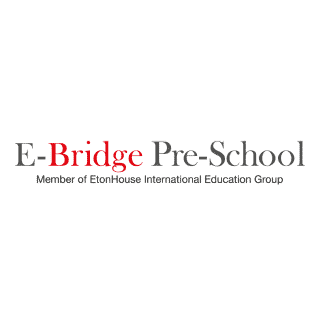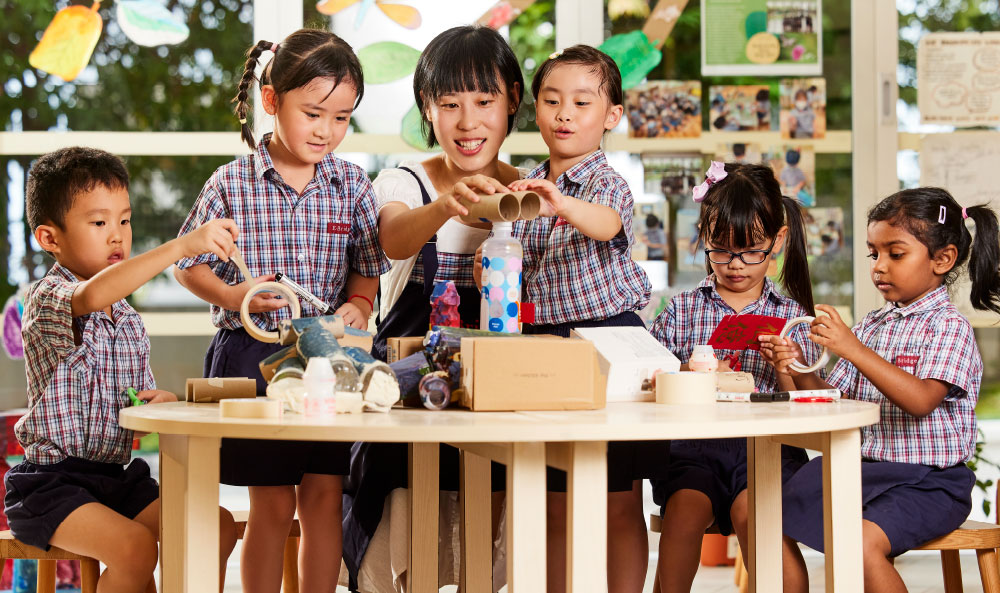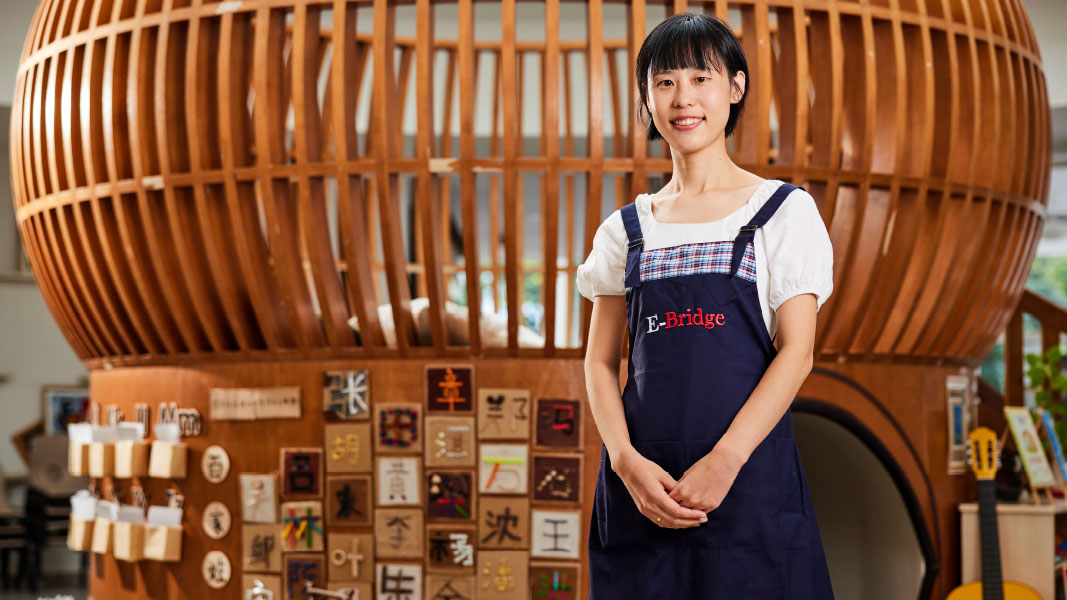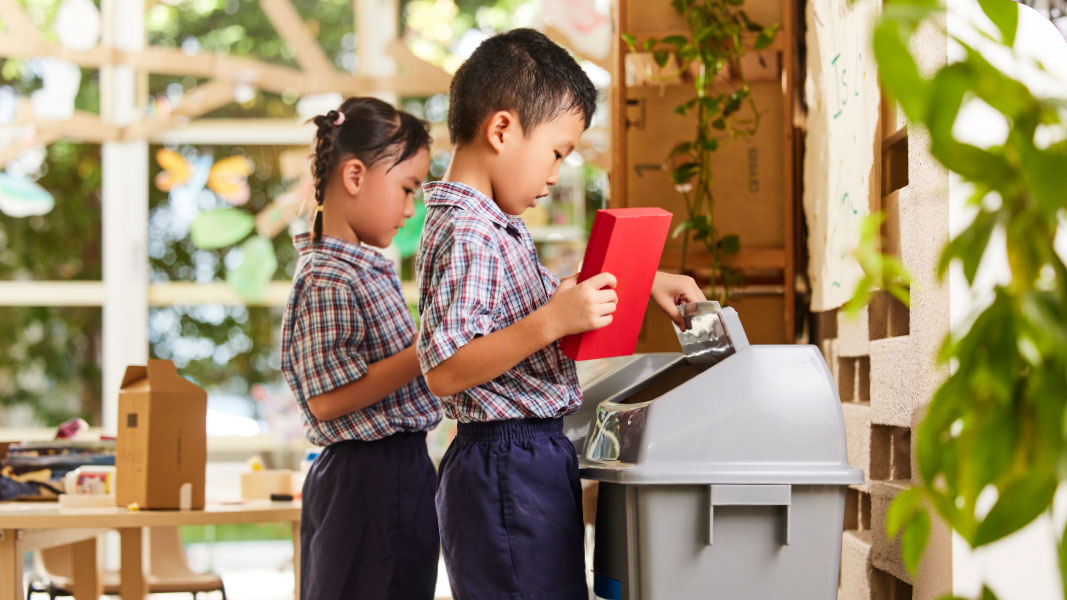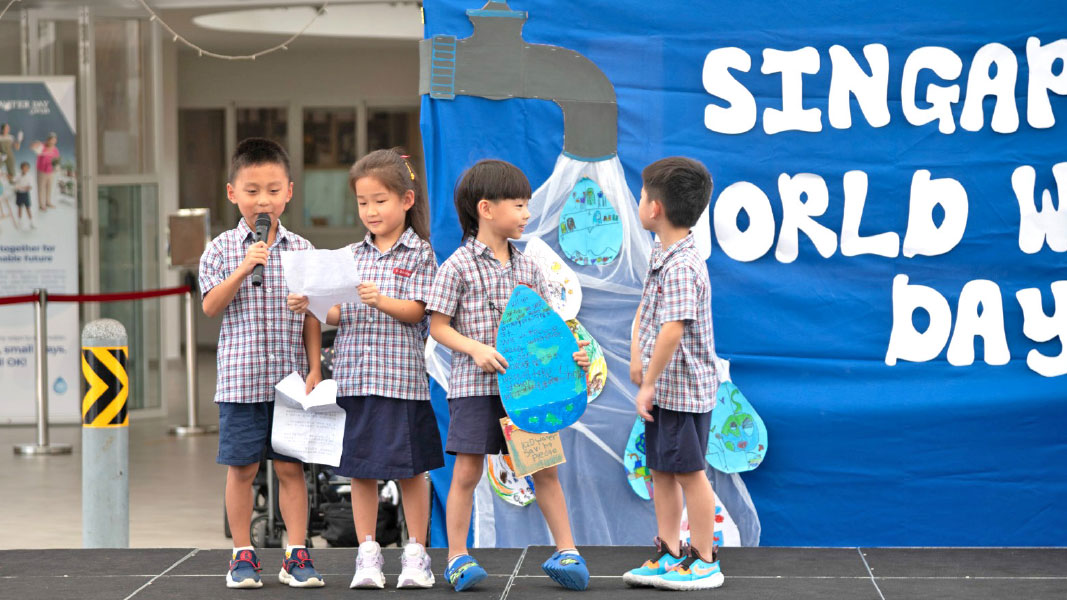W hen it comes to cultivating eco-consciousness in young children, Ms Liu Jie believes that “the environment is the third teacher.” The senior Mandarin teacher at E-Bridge Pre-School Edgedale Plains shared how her students expressed curiosity about the different trees in the school compound. They asked questions like, “What kind of trees are these?”, “Why are they so tall?”, and “Why are the leaves so big?”
“Guided by their curiosity, I facilitated an interactive learning journey where they explored the trees, starting off with research into the various species and characteristics such as leaf shapes, height of the trees and width of the tree barks,” Ms Liu shared. “This naturally deepened their interest and led to various expressions of ideas through visual arts using natural materials.”
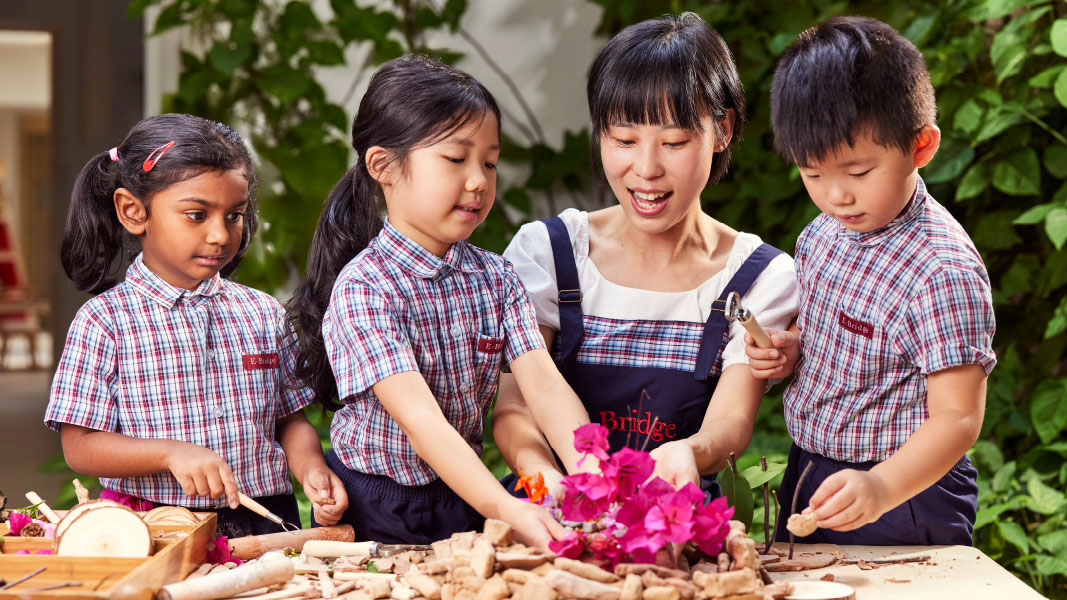
Ms Liu, whose journey in early childhood education spans over a decade, believes nurturing a deep rooted commitment to environmental stewardship starts from a young age. “If children do not connect with, and appreciate, nature and natural resources, we cannot expect them to be their guardians and stewards,” she said. “We encourage our students to spend a significant amount of time in nature, learning outdoors so they see these spaces as an extension of their classroom.”
With an increased spotlight on the impact of global warming and environmental issues, educators like Ms Liu are playing an important role in instilling responsibility and environmental consciousness in the next generation.
PRACTICES THAT INSPIRE
Ms Liu walks the talk, incorporating sustainable habits into her daily life. From using reusable bags and containers to conserving water at home, her actions serve as a model for her students. “I hope to nurture a generation that values sustainability, respects nature and understands their role in preserving planet Earth,” she said.
At E-Bridge Pre-School, these values are introduced through hands-on experiences. Ms Liu and her students actively participate in recycling programmes and nature-based activities. The children collect cardboard and bottles for recycling, using these materials as educational resources to reinforce the importance of sustainability. In addition, gardening and nature walks help cultivate a love for the environment.
Ms Liu has also integrated a range of eco-friendly initiatives into the curriculum. Natural materials like leaves and twigs are used as tools for learning and discovery, while gardening experiences teach children the life cycle of plants and the origins of their food. Ms Liu’s efforts have not gone unnoticed. Her students demonstrate a heightened awareness of environmental issues – from recycling practices to water conservation – and they actively remind each other to save water and sort trash.
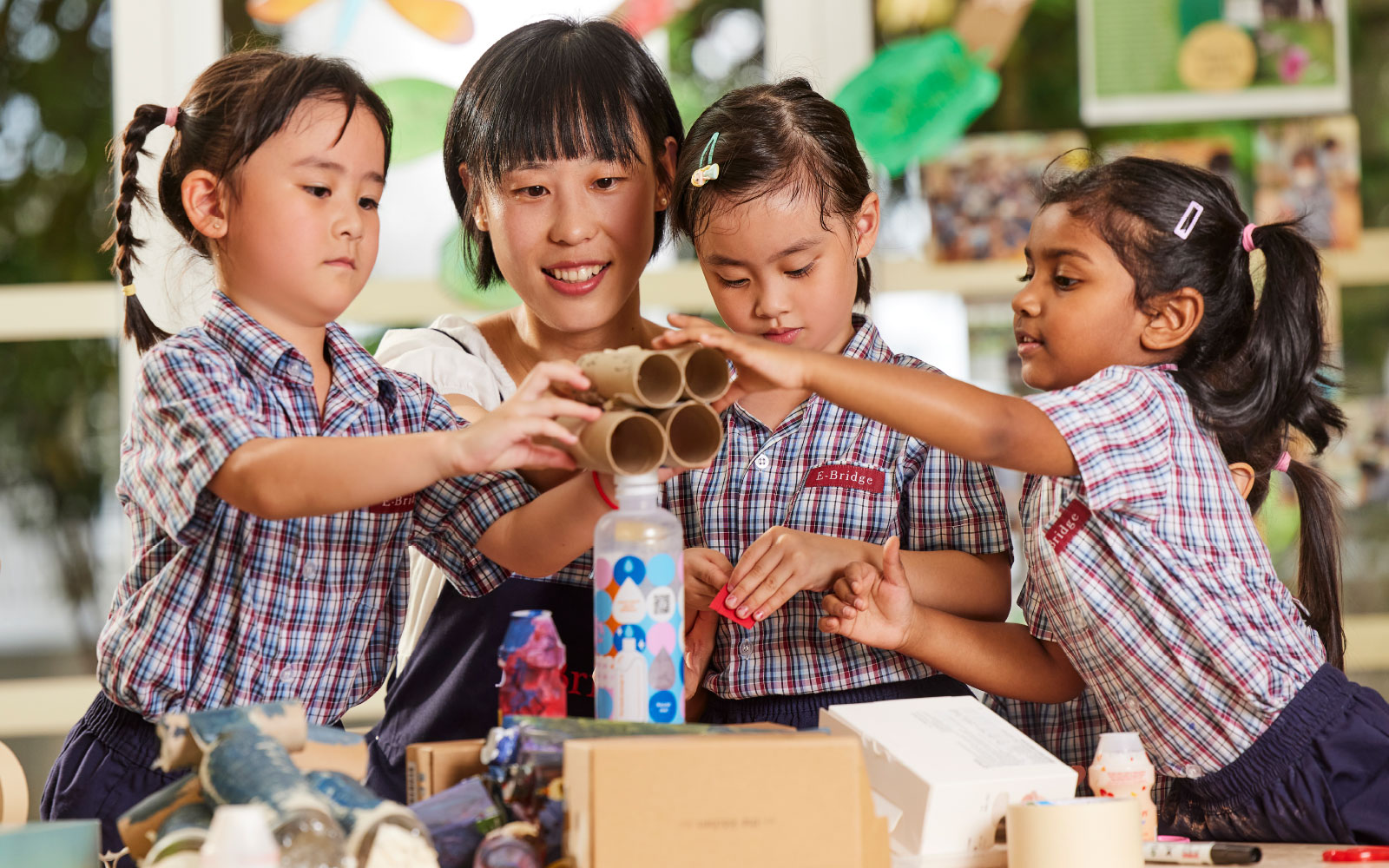

I hope to nurture a generation that values sustainability, respects nature and understands their role in preserving planet Earth.”
PARTNERING THE COMMUNITY
Beyond the classroom, Ms Liu involves families and the wider community in her eco-friendly initiatives. Partnering with local organisations like the Public Utilities Board (PUB), the National Water Agency (NEA) and Animal Concerns Research and Education Society (ACRES), she encourages collaborative efforts in water and wildlife conservation. This year, during Singapore World Water Day, the school entered a partnership with PUB to advocate for the sustainable management of water resources.
“These partnerships are meaningful in providing real-world connections and practical experiences that deepen children’s understanding of environmental stewardship and sustainability,” Ms Liu explained.
LOOKING TO THE FUTURE
To stay updated with the latest trends in early childhood education, Ms Liu leverages a wide range of professional development programmes including exclusive training and resources from Reggio Children with whom EtonHouse and E-Bridge have a collaboration for decades. Inspired and adhering to best practices, Ms Liu plans to expand nature-based learning experiences and establish a creative recycling centre.
For preschool educators looking to inculcate a love for environmentalism in their young children, Ms Liu encourages starting small and building from there. “There are many age-appropriate online resources and books that can help effectively communicate these concepts to children.”
Drawing on real-world examples is another way to help children understand the concept of protecting the environment. Ms Liu engages her students in discussions about events like the Australian bushfires and oil spills, using resources such as the picture book, “What If We Ate Up the Earth.” According to Ms Liu, such discussions help deepen the children’s understanding of environmental issues and sparks ideas for advocacy.

Ms Liu is a very caring educator who understands my child Estelle well. She nurtures and encourages Estelle to be confident, expressive and creative. I can tell Estelle enjoys attending school every day!”
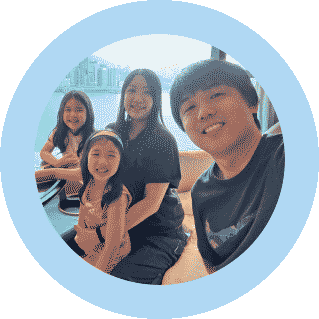
“It’s also important to involve parents,” Ms Liu added. “Share with them about experiences in school and encourage them to practise similar habits at home.” She also recommends introducing natural and recycled materials as learning resources. These are simple yet open-ended and can spark children’s curiosity, interest and connection with nature.
Ms Liu exemplifies the transformative power of education when paired with environmental stewardship. Her holistic approach not only enriches the lives of her students but also paves the way for a sustainable future. Her commitment to nurturing young eco-warriors ensures that the seeds of environmental consciousness are sown early, promising a greener tomorrow.
E-Bridge Pre-School
